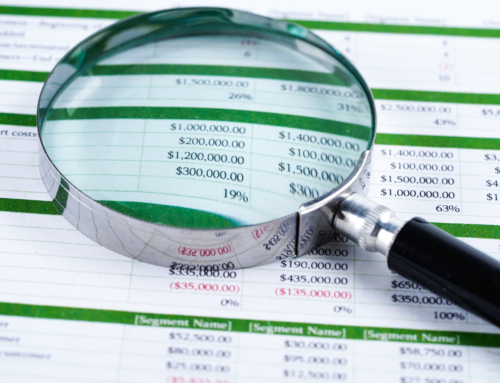Gambling taxes can be a complicated subject to figure out, but they are extremely important. The thrill of earning an easy dollar has more and more people interested in gambling. Whether it be sports betting, casino trips, lottery tickets, or even a friendly poker game, chances are that most of us have placed some type of wager. While many of us are more than willing to make a bet, the tax consequences or benefits of that bet aren’t at the forefront of our minds, but they probably should be. Most of us would like to win the lottery, but that winning Powerball ticket carries a hefty tax bill with it. Let’s dive into gambling taxes below.
Are my gambling winnings taxable?
According to topic number 419 from the IRS’s website, gambling winnings are fully taxable, and you must report them as income on your tax return. Gambling winnings that must be included on your tax return as income include winnings from lotteries, raffles, horse races, and casinos. It is the taxpayer’s responsibility to report gambling winnings as income on their tax return.
Are my gambling losses deductible?
According to topic number 419 from the IRS’s website, you may deduct gambling losses only if you itemize your deductions on your tax return. There is also a limitation to the amount of gambling losses you may deduct on your tax return. You can only deduct gambling losses up to the amount you have in gambling winnings. For example, if you have $5,000 in gambling losses and $4,000 in gambling winnings, you may only deduct $4,000 of the gambling losses as itemized deductions.
What are the recordkeeping requirements for gambling winnings/losses?
In order to deduct your losses, you must keep an accurate diary or similar record of your gambling winnings and losses, and be able to provide receipts, tickets, statements, or other records that show the amount of both your winnings and losses. If you are an avid casino gambler, most casinos will keep a record of your gambling activity that you may request in order to file accurate gambling winnings and losses.
Will my gambling winnings be reported to the IRS? Will there be tax withholdings?
If you have gambling winnings from a casino or lottery, you may receive a Form W-2G from the payor if the winnings are above a certain amount. A payor must file a form W-2G for every person the payor pays $1,200 or more in winnings from slot machines or bingo and $1,500 or more from Keno. Most of the time you can elect to have taxes withheld from these winnings by the payor. Casinos and other sponsors of poker tournaments must report tournament winnings of more than $5,000. Sponsors who comply with the reporting requirement won’t need to withhold. But, if the reporting requirement isn’t met, IRS will enforce it and also require the sponsor to pay any tax that should have been withheld. Payors must withhold 24% on proceeds of more than $5,000 from the following:
- A wagering transaction in a pari-mutuel pool with respect to horse races, dog races or jai alai if the amount of the proceeds is at least 300 times as large as the amount wagered.
- A wager placed in a state-conducted lottery.
- Sweepstakes, wagering pool or lottery (other than a state-conducted lottery).
- All other wagering transactions if the amount of the proceeds is at least 300 times as large as the amount wagered.
Are the tax laws different for professional gamblers?
Professional gamblers are viewed by the IRS as engaged in the trade or business of gambling. This means that professional gamblers report their gambling income and expenses on a Schedule C, Profit or Loss from Business, on their tax return. Professional gamblers are able to deduct non-wagering expenses, such as travel expenses or fees. However, under the Tax Cuts and Jobs Act, the deductions for any expenses incurred in gambling is limited to gambling winnings. In other words, a professional gambler can’t report gambling-related expenses in excess of gambling winnings.
The rising popularity of gambling seems bound to continue. Chances are that you or someone you know will place a bet of some sort in the near future. If you hit that slot machine jackpot on your next casino trip and are unsure of what to do in regards to gambling taxes, feel free to contact Abacus by visiting our website or calling (417) 823-7171. Better Guidance. Smarter Decisions.










